Alternative Dispute Resolution (ADR) is the preferred method of resolving disputes in the construction industry, without the need for Court. ADR methods include Adjudication, Mediation, Arbitration and Expert Determination/Expert Witness, which are quicker and more cost-effective than Court proceedings. Arbicon are specialists in ADR in the construction industry and can deal with any size and type of construction dispute.
Construction disputes often occur between Main Contractors, Subcontractors and Building Employers, where additional works or variations arise, the works can be delayed and an increase in costs to the project can materialise, all of which can lead to a claim by one of the parties. ADR is regularly used to resolve disputes concerning payment, such as interim payments, pay less notices, payment notices, default payments, final accounts, and retention issues. It is also used for construction delays, extension of time claims, loss and expense, repudiatory breach of contract, contract termination, defects, practical completion, incomplete work, design failure, variations and often liquidated damages, bankruptcy, or insolvency.
Get in touch to discuss your dispute
|
Advantages of Using Alternative Dispute Resolution (ADR) The best ADR method for resolving your construction dispute will depend on the nature of the dispute and the construction contract in place. Arbicon are happy to discuss the options with you. There are several advantages of using ADR to resolve your construction dispute instead of Court proceedings:
Cost
With litigation, Court proceedings, often only a fraction of costs are recoverable, the unrecoverable court costs (sometimes 75%) might easily outstrip your claim very quickly and spiral out of control.
Speed Unlike Court proceedings which can be lengthy, disputes can be resolved through ADR quickly. The leading method of ADR in the construction industry is Adjudication, which once a dispute is started, can be resolved within 28 days.
Confidentiality ADR is a private process between parties to the dispute and therefore it is not in the public domain like litigation. This can help maintain relationships between Main Contractors, Subcontractors and Building Employers and makes the process easier. |
ADR Methods for Construction Disputes
Adjudication
Any party to a commercial construction contract has a statutory right to refer a dispute to Adjudication, without the need for a specific contract clause.
Adjudication in construction is a formal, very fast and effective alternative dispute resolution (ADR) process to end commercial construction disputes and is much cheaper than Court proceedings. It is a specialist area of law and it is essential that any case representation is properly advocated by experienced construction professionals. The effective Adjudicators and Advocates are normally Chartered Quantity Surveyors as are Arbicon, experienced in working on construction projects and experts in the measurement and valuation of construction work and time.
The construction Adjudication process generally takes 28 days and can be used in construction disputes going into millions of pounds, irrespective of any Court proceedings that may have already commenced.
Arbicon has been involved in Adjudication in Construction since it started in 1998 and can act as both a party Advocate or can appoint a Construction Adjudicator.
Find out more about Adjudication
Mediation
Construction Mediation is a well-established process used in the construction industry to resolve disagreements, an impartial third party (the Mediator) helps parties to the dispute find a mutually acceptable resolution.
Unlike Adjudication and Arbitration there is no determination of the dispute by a third party. The process is without prejudice and confidential. Mediation explores the psychology of the parties in the construction dispute, allowing the parties to step back to consider their positions to look at the behaviour and reality of what has happened and what the result will be if the dispute continues. The process can also recover business relations. It does need both parties to co-operate to reach a settlement.
Find out more about Mediation
Arbitration can be used in the Construction industry, where a party or parties seek a final determination of a dispute. Unlike Court proceedings, which are similar, the dispute is held privately and confidentially as opposed to open Court.
The Arbitrator is paid by the parties as opposed to a Judge who is free. Legal Costs can be recovered, the Arbitrator decides who pays the fees and the legal costs of the action depending on any cost agreement or law in respect of "costs following the event".
Arbitration practice and procedure is governed by statute in England, Wales and Northern Ireland under the Arbitration Act 1996. The Act provides mandatory and optional rights to the parties, thus guidance in setting up an Arbitration agreement and the execution of Arbitration proceedings needs to be carefully dealt with.
Find out more about Arbitration
Expert Determination/Expert Witness
Expert Witness Reports can help to understand the strengths and/or weaknesses of a construction dispute and develop the best strategy to resolve it.
Arbicon are Chartered Quantity Surveyors and Experts in Construction Law, we can provide Expert Determination services and Expert Witness evidence fully compliant with RICS practice statements and Construction CPR 35 Reports for any Court or Tribunal.
Find out more about Expert Determination/Expert Witness
Often expert negotiation and/or the threat of formal ADR can prompt a settlement, and if not, your dispute will be evidentially set up to move forward. If you are seeking to resolve a construction dispute through ADR, even if Court proceedings have commenced, please use our contact form or call any of our offices.

